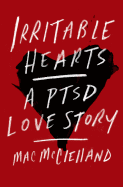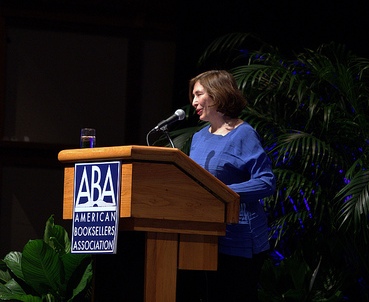 |
| Azar Nafisi (photo: Kevin Mann) |
In a rousing talk at yesterday's breakfast at the Winter Institute in Asheville, N.C.--a talk that ended with an instant standing ovation--Azar Nafisi, author of Reading Lolita in Teheran and The Republic of Imagination, passionately discussed the importance of the book--and booksellers--for civilization, for democracy, for perpetuating human values and for creating empathy and connections between people of widely different times and places. She made fun of politicians and the news media (excluding "real news" man Jon Stewart), and quoted many writers and books, particularly The Adventures of Huckleberry Finn ("the greatest book America ever produced"). She also praised the ideals of the United States, while saying that this is an "exciting but also dangerous time of transition and change."
Introduced by Betsy Burton of the King's English Bookshop, Salt Lake City, Utah, as "the hero of booksellers, librarians, teachers and readers everywhere," Nafisi began by holding up the glass of water at the dais and saying, "Because this is the kind of place where water turns to wine, I want to begin by drinking to independent booksellers. Even drinking coffee will have same effect."
Nafisi confessed to a little nervousness (not that that kept her quiet!) because "when you're among people you like and respect the most, you really feel nervous."
What has led to the current economic and political crisis, she said, is "what the great writers in this country call complacency, smugness." If the country doesn't take "risks and innovate and remember its ideals and values," the situation becomes very dangerous. "Just look at the history of the 20th century," she said. "No one would have thought that at the heart of civilization, in Germany, there would be fascism." Citing Sinclair Lewis's book It Can Happen Here, she said, "The point is it can happen anywhere."
Bookstores are a bastion against such dangers, she said. "Bookstores are the real manifestation of what a democratic space is because on bookshelves you don't differentiate what you put on by race, gender, religion, nationality or ethnicity. Everybody shares and participates in this democratic space side by side."
The act of reading is democratic and global, Nafisi said. "Once you become immersed in a book, you're not just a citizen of the United States, you're a citizen of the world." She used the example of an American reading Rumi and "a young kid who's never left the Islamic Republic of Iran who holds in her hand Herzog and lovingly calls the author Saul." This, she said, "is genuine globalism, not just going on Google and finding out where Estonia is. That's just information."
"Today bookstores and libraries are custodians of American history and American culture," she continued. She called for discussing issues and bringing people--particularly students--into stores, to "give them access to books and show them how it feels to hold books in their hands. This is a very important time for us, and if we do not do these things, we have shirked our responsibility."
Politicians won't solve the problem, she said. "I'm here today to say that we need to create space for an alternative viewpoint that is neither utilitarian nor ideological."
Nafisi decried people who take a utilitarian approach to education and want to rid schools of humanities. She laughed, saying these critics of the humanities make it sound as if the current economic and political crisis was caused "by a poet or artist or publisher or bookseller." She urged book people not be defensive about the value of books--arguing, for example, that the book business makes money--saying, "We are not here to offer aspirin for this economy or the crisis that we're in. We're not going to Botox our problems out of existence."
Connection and empathy are keys to civilization, she continued, and books are important here, too. "It takes a lot of work to feel pain," she said as she ridiculed the tendency of "our kids" who don't ever want to be hurt or feel pain and want to be insulated. People "need to reflect and question and question ourselves. There is danger and risk in every question." In The Adventures of Huckleberry Finn, whose every page "contains violence that comes out of complacency," Mark Twain "discovered that the flaw in this country, the worst kind of violence that will always be the measure of freedom in the country, is slavery."
Twain also highlighted another American problem. "American fiction is constantly reminding us that if we follow only the materialistic side of the American dream, we will be dead literally," she said. "The whole idea is not that wealth is bad"--it can be the means to the end of a more humane society--but it can be bad "when wealth is the end in and of itself."
The ideals of the American nation are unlike any other country's, Nafisi said. "The country is so new; its history is so new. It's as if George Washington was your grandfather." She praised the founders of the country, who were flawed humans--"heaven knows they were slaveholders and Jefferson slept with Sally Hemings"--but the beginning of the Declaration of Independence has been "a mandate" used by people as diverse as Lincoln, Frederick Douglass, Elizabeth Cady Stanton, Susan B. Anthony and Martin Luther King, Jr., "to overturn every prejudice our founders were guilty of." The American dream, she continued, is "a shining place where the ideas of humanity would be central. That's why the founders made documents that went beyond their own times and prejudices."
Dignity is an essential human quality, too. "Human dignity is as important as life," she said. "Depriving people of their dignity is the worst crime you can commit." Thus, "we live in a democracy and individualism is important because the dignity of your neighbor is your dignity. We need an equitable society not because we're bloody socialists but because the world is more dignified when you are dignified."
Nafisi also lauded the traditional printed book, saying, "Form is content." Books serve as a kind of memory, which human beings need because "memory is the only conclusive sign that we have lived.... We need evidence that there was a life before us so we know there will be a life following. All the books on our shelves give us continuity and remind us that this is the only way to resist not just the tyranny of man but the tyranny of life, since we all die."
Nafisi said that for 30 years she has kept a copy of Nabokov's Ada given to her by her first love. "It's dog-eared," she said. "I've lost the cover, but every time I look at the book, I remember how my heart was full of love and how my heart broke." She added: "The reason your bookstores are thriving is not because people are making statements against Amazon, but because they want the book as an object."
Nafisi ended her talk as she began, making a toast. "In our different ways, we are custodians of memory and of all that remains," she said, lifting her glass. "Your job is one of most serious jobs in this country, and I'll drink my water to you." --John Mutter
 A spirited group of more than 500 independent booksellers, more than 100 authors and many publishers convened this week at the Grove Park Inn in Asheville, N.C., for the 10th ABA Winter Institute, which ended last night. As always, there's nothing so special as many of the smartest, most dedicated booksellers in the country talking shop and talking books for three concentrated days.
A spirited group of more than 500 independent booksellers, more than 100 authors and many publishers convened this week at the Grove Park Inn in Asheville, N.C., for the 10th ABA Winter Institute, which ended last night. As always, there's nothing so special as many of the smartest, most dedicated booksellers in the country talking shop and talking books for three concentrated days.













 While Jon Stewart's announcement that he will be leaving The Daily Show sent shock waves throughout the U.S. this week, "
While Jon Stewart's announcement that he will be leaving The Daily Show sent shock waves throughout the U.S. this week, "
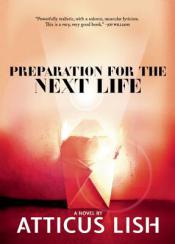
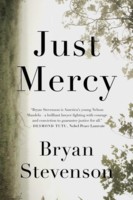
 In honor of the recent
In honor of the recent 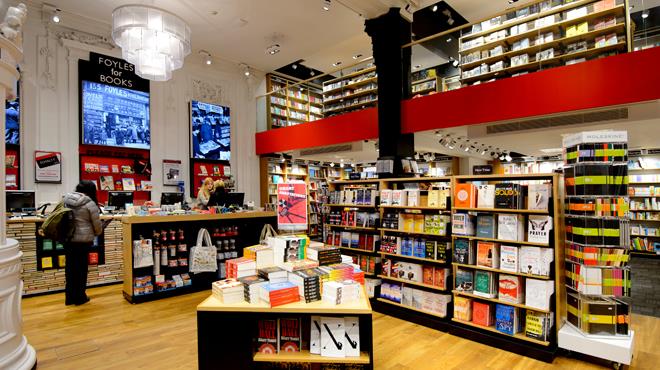 On the first anniversary of the opening of
On the first anniversary of the opening of  I Don't Want to Be a Frog
I Don't Want to Be a Frog While booksellers may experience an uptick in sales of the novels, other retailers are also expected to benefit. (Have you seen the
While booksellers may experience an uptick in sales of the novels, other retailers are also expected to benefit. (Have you seen the 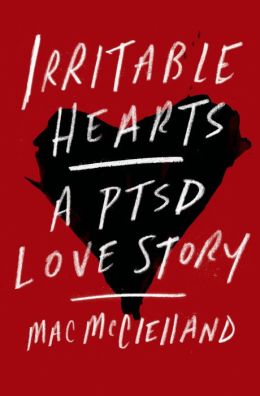 In a heart-searing memoir, journalist Mac McClelland (For Us Surrender Is Out of the Question) recounts her struggle with post-traumatic stress disorder (PTSD) and the love that inspired her to overcome it.
In a heart-searing memoir, journalist Mac McClelland (For Us Surrender Is Out of the Question) recounts her struggle with post-traumatic stress disorder (PTSD) and the love that inspired her to overcome it.